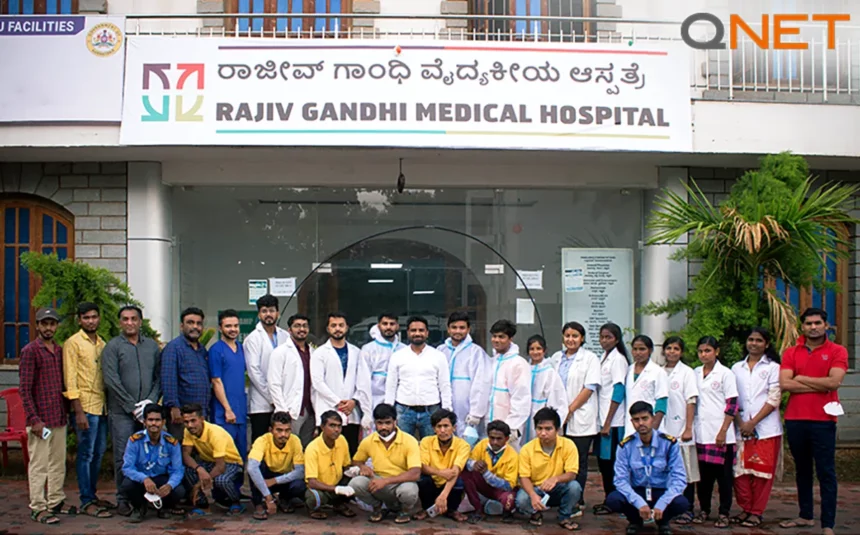The second wave of Covid-19 infections in India has led to a difficult situation in Bangalore with a rise in cases. It is estimated that there are only 4,000 beds available for a population of 12 million. Recognising this crisis situation, a group of young technology entrepreneurs in Bangalore decided to do something about it.
“Bangalore is our home. We thought that if we don’t do it, who is going to do it? We know that the public healthcare system is already stretched” says Amruta Desai, the Executive Director of Globals Inc, a multinational technology firm with headquarters in Bangalore.
Globals initially joined hands with Presidency University and Rotary Club Manyata to mobilise the transformation of a non-operational hospital building in Bangalore’s RT Nagar suburb into Project CoHeal, a Covid Care Facility serving patients in need, free of cost. The building was originally meant to be set up as a medical hospital which was a prerequisite for building a medical college, a plan that was abandoned due to the pandemic.
QNET’s CSR arm RYTHM Foundation heard about the work being done Project CoHeal and stepped in to help with scaling the operations of the hospital by funding oxygen concentrators, ventilators, and salaries for the doctors and nurses for a period of 6 months. Project CoHeal opened its doors to patients on May 24, 2021 and is able to treat up to 100 patients at a time.
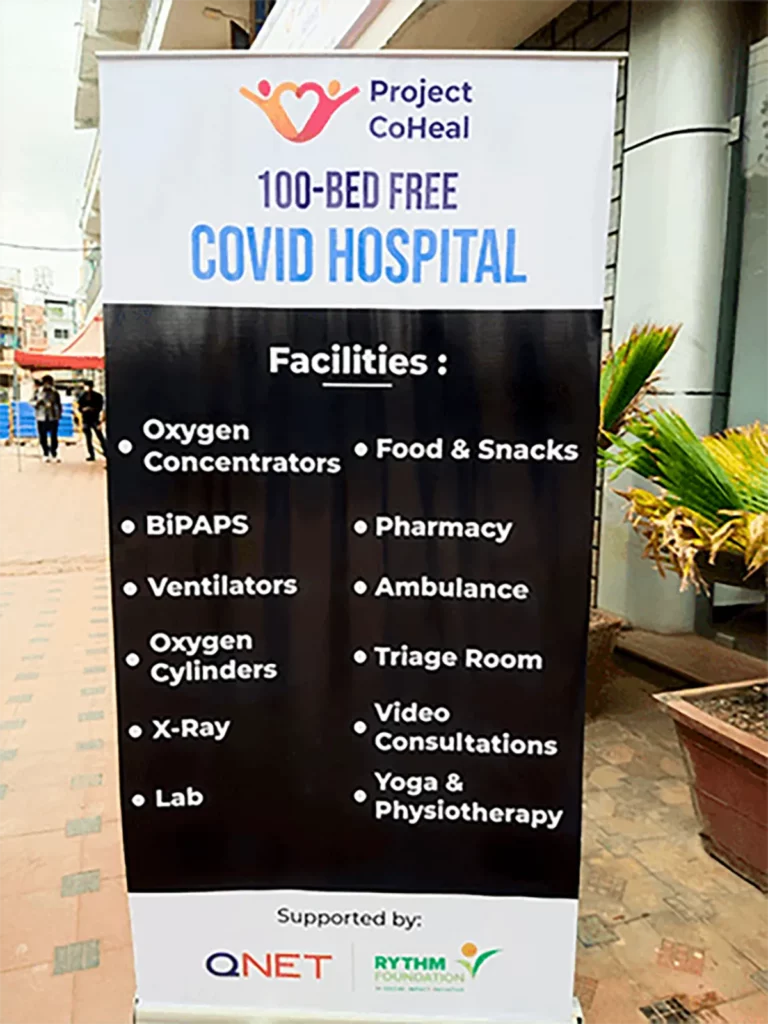
Giving back through RYTHM Foundation
RYTHM Foundation is QNET’s global CSR arm which stands for ‘Raise Yourself To Help Mankind’. The Foundation’s core values are built on the principles of Empowerment, Volunteerism, and Resilience. RYTHM Foundation strives to support underserved communities around the world in partnership with grassroots organisations by supporting projects that contribute to achieving the UN Sustainable Development Goals (SDGs).
Project CoHeal is a testament to the power of people and organizations coming together for the common good during times of need. This healthcare facility was established in a record time of 7 days thanks to the tireless efforts of the people involved. The hospital has no cash counters assuring patients that their treatment is 100% free. Oxygen concentrators are available for all patients and the best doctors provide special care and consultation. Thanks to the support from QNET, the hospital is now able to set up dedicated ICU facilities for patients.
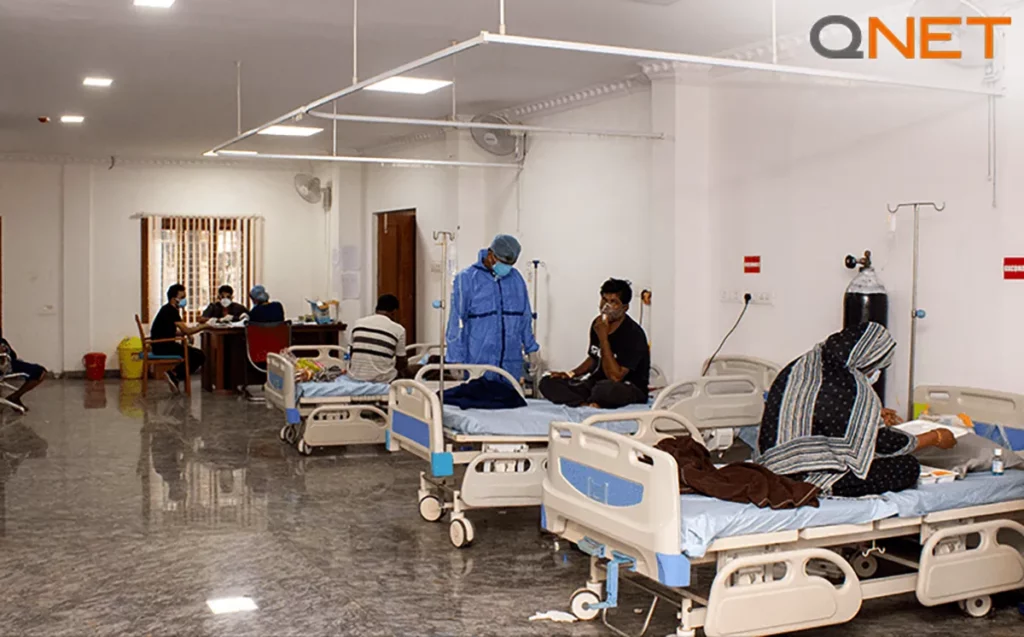
“One of the things we wanted to look at when we were building the hospital is that it should run for at least one year, not just for a month. In case there is a third wave, we do not want to be reactive like how we did with the second wave. We have to be proactive. We have to be having the infrastructure ready, and god forbid if a third wave comes”, Amruta explains.
QNET’s support has allowed the hospital to purchase four units of High Flow Nasal Cannula (HFNC) Ventilators, a crucial requirement for the ICU Units being built within the COVID-19 Care hospital.
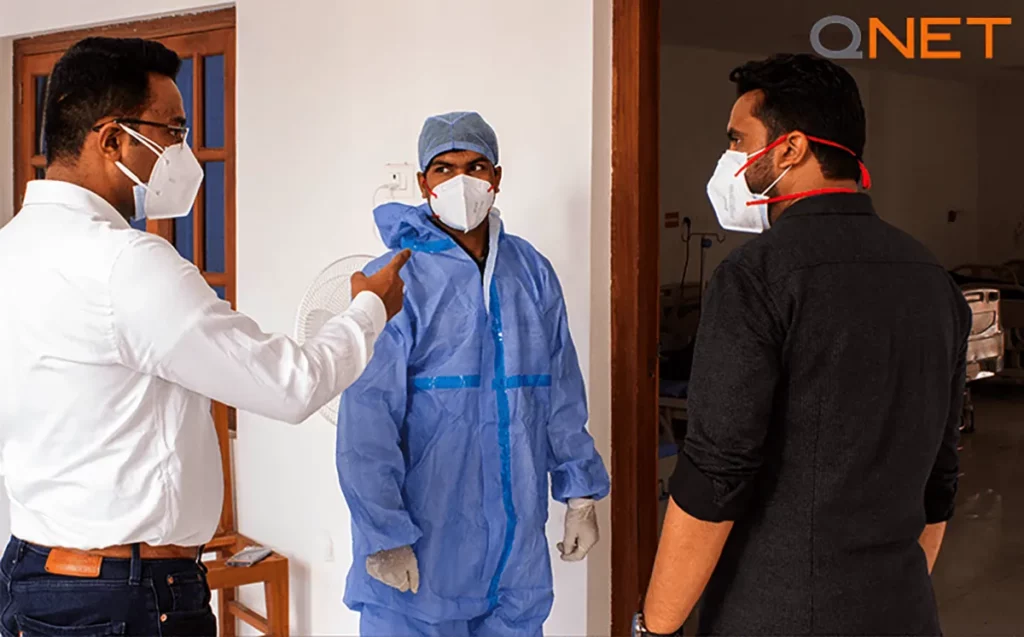
There were struggles initially in executing the project. As Amruta narrates her experience, “We had almost finalised and gotten all the equipment ready to convert a men’s hostel into a Covid care hospital. We almost signed the paperwork, and (they) just backed out when they realised the building will be used to treat Covid patients. It was shocking for us as we were suddenly left without a space.” The difficulty of finding a building was further compounded by the tough task of getting approvals from the authorities.
However, their will and desire to serve those in need allowed them to persevere and with the help of like-minded partners, Project CoHeal was able to take shape. The hospital has received the support and approval from the BBMP authorities in Bangalore, who also list CoHeal on their website as a recommended facility for Covid treatment.
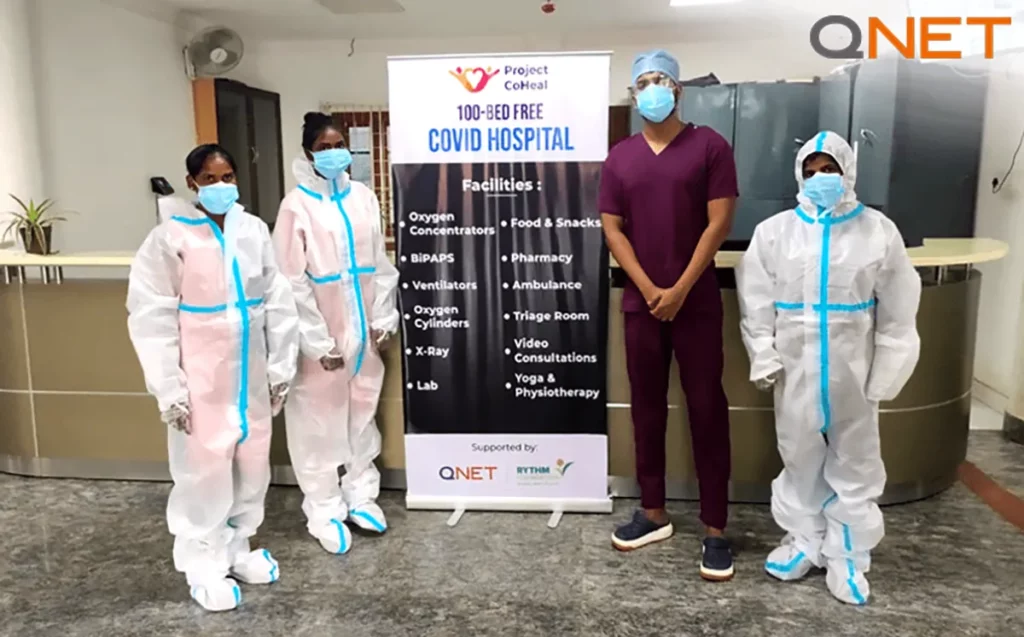
The aim of Project CoHeal, as its name suggests, is to redirect the fears of Covid-19 and its consequences towards a more positive focus of healing together.
We hope that this effort helps the community in this time of need and serves as a symbol of hope and a source of comfort for the families.


